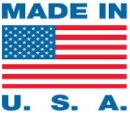Exploring Custom Extrusion: Applications and Advantages
Created at : Sep 12, 2023
Custom extrusion is a versatile manufacturing process that plays a crucial role in the production of various products across multiple industries. It involves pushing a material, typically plastic or metal, through a specially designed die to create a desired cross-sectional profile or shape. This process allows for precise control over dimensions and design, making it a popular choice for a wide range of applications.
The Basics of Custom Extrusion
Custom extrusion begins with the selection of a suitable material, such as thermoplastics (e.g., PVC, PE, PP), thermosetting plastics (e.g., epoxy), rubber, metals, or even food products like pasta. The chosen material is fed into an extruder, which melts it and forces it through a die—a specially designed opening that imparts the desired shape to the extrudate.
One of the defining characteristics of custom extrusion is its adaptability. Manufacturers can customize the die to produce profiles of various shapes and sizes, including rods, tubes, channels, and complex geometric shapes. Additionally, the process can be used for both continuous and batch production, making it suitable for a wide range of applications.
Applications of Custom Extrusion
- Construction Industry: Custom extrusion is widely used in the construction sector to create various building components, such as window frames, door frames, and weather stripping. Plastic extrusions are favored for their durability, resistance to moisture, and ease of maintenance.
- Automotive Industry: Automotive manufacturers utilize custom extrusion for producing components like trim, seals, and gaskets. The ability to create precise profiles and incorporate various materials within a single extrusion enhances functionality and reduces assembly complexity.
- Electronics: In the electronics industry, custom extrusion is employed to manufacture protective casings, wire insulation, and cable management systems. The high degree of customization allows for the integration of conductive materials or electromagnetic shielding.
- Packaging: Plastic extrusion plays a crucial role in packaging materials such as flexible films, bags, and containers. The process allows for the production of lightweight and cost-effective packaging solutions with customizable features like seals and spouts.
- Medical Devices: The medical industry benefits from custom extrusion for producing components like catheters, tubing, and seals. Medical-grade materials can be precisely extruded to meet stringent regulatory requirements.
- Aerospace: Custom extrusion is employed in the aerospace sector to create lightweight yet strong components, such as airframe parts and structural profiles. Aluminum and other aerospace-grade materials are often used in this application.
- Food Industry: Food-grade extrusion is used to manufacture a variety of food products like pasta, cereal, and snacks. This process ensures uniformity in shape and size while preserving the flavor and texture of the food.
Advantages of Custom Extrusion
- Precision: Custom extrusion offers exceptional control over product dimensions and tolerances, resulting in consistent and high-quality outputs.
- Cost-Effectiveness: Mass production capabilities and minimal waste make custom extrusion a cost-effective manufacturing method.
- Material Flexibility: Custom extrusion can process a wide range of materials, enabling manufacturers to select materials with specific properties to meet their product requirements.
- Complex Geometries: The process allows for the creation of intricate profiles and complex cross-sections that are difficult to achieve using other methods.
- High Production Speed: Continuous extrusion processes can produce large quantities of material quickly, meeting high-demand production requirements.
Conclusion
Custom extrusion is a versatile manufacturing process with a broad spectrum of applications across diverse industries. Its ability to create precise profiles, its cost-effectiveness, and its flexibility in material selection make it an invaluable tool for manufacturers seeking to produce high-quality, customized products. As technology advances, we can expect custom extrusion to continue evolving, offering even more possibilities for innovation and efficiency in manufacturing.

